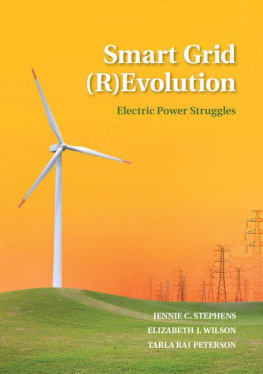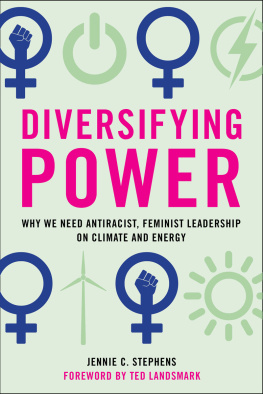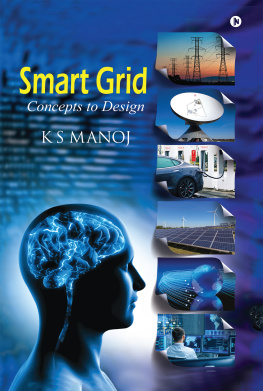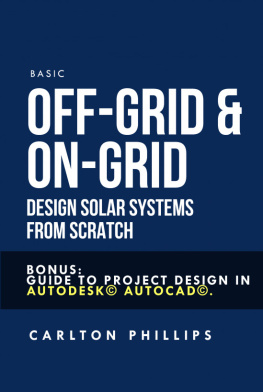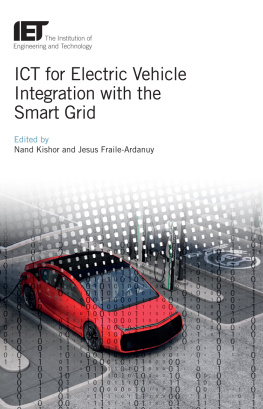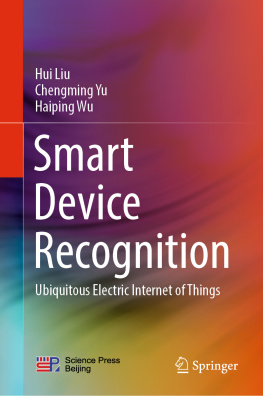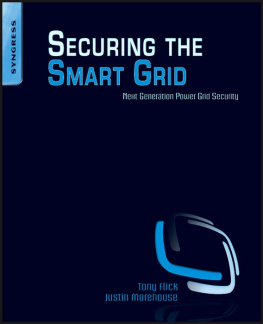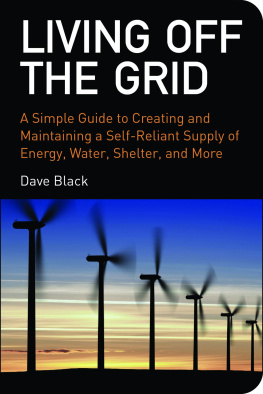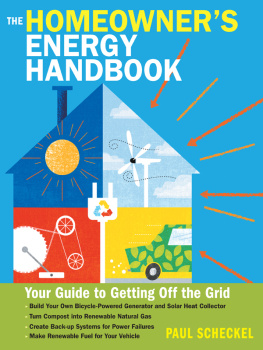Smart Grid (R)Evolution
The term smart grid has become a catch-all phrase to represent the potential benefits of a revamped and more sophisticated electricity system that can fulfill several societal expectations related to enhanced energy efficiency and sustainability. Smart grid promises to enable improved energy management by utilities and by consumers, to provide the ability to integrate higher levels of variable renewable energy into the electric grid, to support the development of microgrids, and to engage citizens in energy management. However, it also comes with potential pitfalls, such as increased cybersecurity vulnerabilities and privacy risks. Although discussions about smart grid have been dominated by consideration of technical and economic dimensions, this book takes a sociotechnical systems perspective to explore critical questions shaping energy system transitions. It will be invaluable for advanced students, academic researchers, and energy professionals in a wide range of disciplines, including energy studies, environmental and energy policy, environmental science, sustainability science, and electrical and environmental engineering.
JENNIE C. STEPHENS is an Associate Professor and the Blittersdorf Professor of Sustainability Science and Policy at the University of Vermont's Rubenstein School of Environment and Natural Resources and its College of Engineering and Mathematical Sciences. Jennie's research, teaching, and community engagement focus on the sociopolitical aspects of energy technology innovation, electricity system change, and climate change communication. She has contributed to the understanding of the social dynamics of wind power, carbon capture and storage, and smart grid, and she brings to this project experience in stakeholder engagement and communication with experts, academics, and the public. She is particularly interested in facilitating social learning as we transition away from fossil fuelbased energy systems toward renewables-based systems.
ELIZABETH J. WILSON is Associate Professor of Energy and Environmental Policy and Law at the Humphrey School of Public Affairs and a Fellow at the Institute on the Environment, both at the University of Minnesota. Elizabeth brings to this project extensive knowledge on the importance of subnational factors in shaping energy policy and technology deployment, with a special focus on policies, regulatory and legal frameworks for emerging energy technologies in states, and Regional Transmission Organizations. Her research has also focused on regulatory and governance systems for carbon capture and sequestration, energy efficiency, and wind power.
TARLA RAI PETERSON is Professor of Environmental Communication at the Swedish University of Agricultural Sciences and holds the Boone and Crockett Chair of Wildlife and Conservation Policy at Texas A&M University. Tarla Rai has published several books and numerous articles on the intersections between communication, policy, and democratic practice, particularly as these intersections relate to science and technology. Her most recent book, The Housing Bomb , explores these intersections as they relate to public participation in development of policy that could enhance sustainability. She brings to this project extensive theoretical and critical expertise on public perceptions of environmental issues and technologies and the critical role of both mediated and interpersonal communication in the practice of democracy among members of a pluralistic society.
Smart Grid (R)Evolution
Electric Power Struggles
Jennie C. Stephens
University of Vermont
Elizabeth J. Wilson
University of Minnesota
Tarla Rai Peterson
Swedish University of Agricultural Sciences
32 Avenues of the Americas, New York, NY 10013-2473, USA
Cambridge University Press is part of the University of Cambridge.
It furthers the University's mission by disseminating knowledge in the pursuit of education, learning, and research at the highest international levels of excellence.
www.cambridge.org
Information on this title: www.cambridge.org/9781107047280
Jennie C. Stephens, Elizabeth J. Wilson, and Tarla Rai Peterson 2015
This publication is in copyright. Subject to statutory exception and to the provisions of relevant collective licensing agreements, no reproduction of any part may take place without the written permission of Cambridge University Press.
First published 2015
Printed in the United States of America
A catalo record for this publication is available from the British Library.
Library of Congress Cataloguing in Publication Data
Stephens, Jennie.
Smart grid (r)evolution : electric power struggles / Jennie C. Stephens,
University of Vermont, Elizabeth J. Wilson, University of Minnesota,
Tarla Rai Peterson, Texas A&M University.
pages cm
Includes bibliographical references.
ISBN 978-1-107-04728-0 (Hardback)
1. Smart power grids. I. Wilson, Elizabeth J. II. Peterson, Tarla Rai.
III. Title. IV. Title: Smart grid evolution. V. Title: Smart grid revolution.
TK3105.S74 2015
333.7932dc23 2014035119
ISBN 978-1-107-04728-0 Hardback
Cambridge University Press has no responsibility for the persistence or accuracy of URLs for external or third-party Internet Web sites referred to in this publication, and does not guarantee that any content on such Web sites is, or will remain, accurate or appropriate.
We dedicate this book to our families
Contents
Foreword
What makes a book worth reading? Has it a theme , a topic of importance that matters? Perhaps we can use it as a tool , to do good things? Can it take us on a journey to new worlds? Will it stretch our minds and challenge the old thoughts in them? This book, Smart Grid (R)evolution , offers value by each of those measures.
If you want a grand and vital theme , here it is. No crisis is more all-threatening than climate-change, and nothing we can do about it is more important than controlling the generation of electricity, and no campaign to optimize generation of electricity is viable without:
smarter decisions about which power-plants to turn on and off,
smarter decisions about which transmission lines to open and close, and
smarter ways to show customers how their acts affect operations and costs:
in short, a smarter grid.
This book looks from several angles at the promises and pitfalls that lie between the grid systems of today and the emergence of that smarter grid.
Is this book a tool ? Yes; it's a multi-task, Swiss-Army-knife, kind of tool, with tips for readers on everything from listening to customers, to looking at data across-the-board, to balancing the pace of infrastructure investments among retail, wholesale, and operational installations and practices. Anyone charged with operating an electrical system, anyone concerned about using an electrical system, and anyone worried about paying for one, will find useful insights in this text.
Is it a journey ? Yes; this story takes us from the sea-flooded subways of New York, to the mountains of Boulder, to Austin in the Texas plain, and to the North Sea cliffs of Bornholm. Around the world, the book shows us the early seeds and the emerging shoots of a radically new system. It is a journey over time as well as over miles, and from mind to mind, from group to group. It treats, with respect, the hopes of many and the concerns of others. So we are led to both promises and fears, with a calm and reasoned summary of each.

